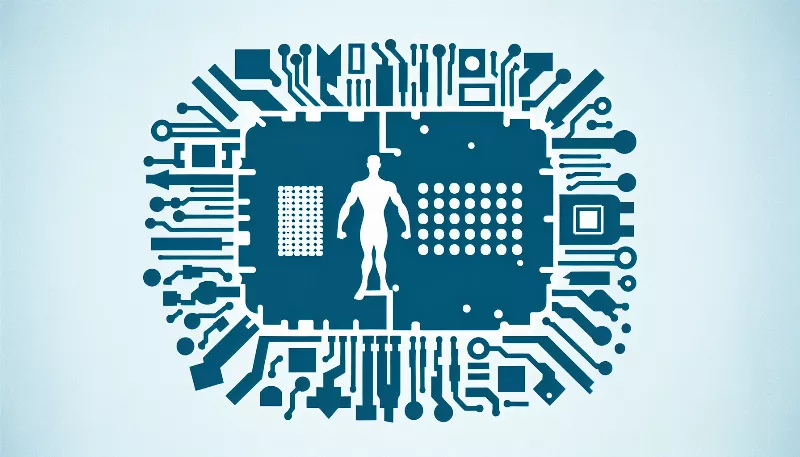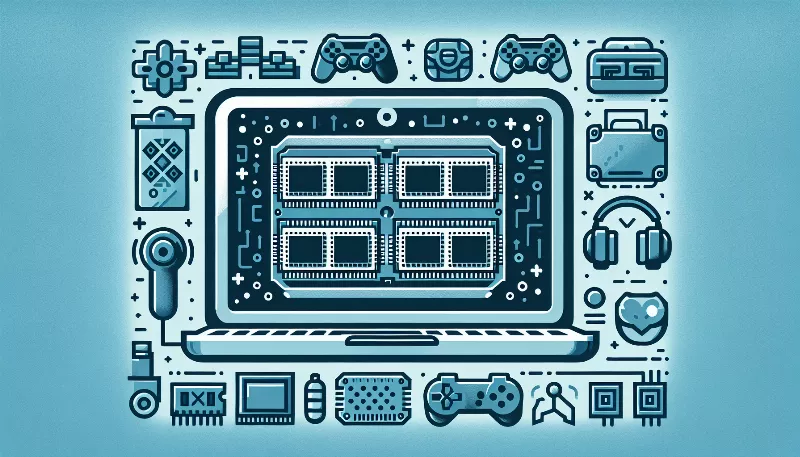Core Wars: Understanding the Different Laptop CPUs on the Market
Dive into the laptop CPU battlefield! Compare features, performance & find your ideal processor for gaming, work or casual use. Master the Core Wars now!

Unleashing the Power Within: A Deep Dive into Laptop CPUs
Are you ready to embark on an electrifying journey through the heart of your laptop? The central processing unit, or CPU, is the brain of your computer, and understanding its intricacies can be as thrilling as it is essential. With a myriad of options available, the 'Core Wars' are heating up, and we're here to help you navigate the battlefield of laptop CPUs!
The Titans of Technology: Intel and AMD
When it comes to laptop processors, two names dominate the landscape: Intel and AMD. These tech giants have been locked in a fierce competition for decades, pushing the boundaries of performance, efficiency, and innovation.
Intel's Lineup: Intel has long been a household name, with its Core series leading the charge. The Core i3, i5, i7, and i9 processors offer a range of capabilities, from basic computing needs to high-end power for gaming and professional tasks. Intel's latest chips boast impressive features like integrated Iris Xe graphics and AI-enhanced capabilities, ensuring a smooth and responsive experience.
AMD's Counter: Not to be outdone, AMD has made significant strides with its Ryzen series. The Ryzen 3, 5, 7, and 9 processors are known for their exceptional multi-threading performance, making them ideal for multitasking and demanding applications. AMD's inclusion of Radeon graphics also provides a solid foundation for gaming and creative work without the need for a separate graphics card.
Understanding CPU Specifications
When comparing CPUs, it's crucial to look beyond just the brand and model number. Key specifications such as core count, clock speed, cache size, and thermal design power (TDP) play a significant role in determining a processor's capability.
Core Count: More cores generally mean better multitasking and performance in threaded applications. However, for tasks that don't utilize multiple cores, a higher clock speed might be more beneficial.
Clock Speed: Measured in gigahertz (GHz), clock speed indicates how fast a CPU can process instructions. A higher clock speed can translate to snappier performance for single-threaded tasks.
Cache Size: The CPU cache is like a small, ultra-fast memory that stores frequently used data for quick access. A larger cache can significantly improve performance by reducing the time it takes to retrieve data.
TDP: Thermal design power reflects the maximum amount of heat a CPU is expected to generate. It's an important consideration for laptop cooling solutions and battery life.
Emerging Players and Innovations
While Intel and AMD are the frontrunners, other players like Qualcomm and Apple are shaking things up with their own CPU designs. Qualcomm's Snapdragon processors, originally designed for mobile devices, are now powering ultra-portable laptops with a focus on connectivity and battery life. Meanwhile, Apple's M1 chip has redefined what's possible in a laptop CPU, offering remarkable performance and efficiency gains over traditional x86 architecture.
As technology advances, we're also seeing exciting developments like ARM-based processors and AI-driven computational capabilities. These innovations promise to redefine the laptop experience, offering new levels of performance, efficiency, and functionality.
Choosing the Right CPU for Your Needs
Selecting the perfect CPU for your laptop depends on your specific needs and usage patterns. For casual users, a mid-range processor like an Intel Core i5 or AMD Ryzen 5 will handle everyday tasks with ease. Gamers and creative professionals might lean towards the higher end, opting for an Intel Core i7/i9 or AMD Ryzen 7/9 to ensure top-tier performance. And for those prioritizing portability and battery life, an ARM-based CPU or Apple's M1 might be the way to go.
Remember, the most powerful CPU isn't always the best choice for everyone. Balance your decision with considerations like budget, desired battery life, and the types of applications you'll be running. With the right knowledge, you can choose a CPU that not only meets but exceeds your expectations, propelling you to victory in the Core Wars!










